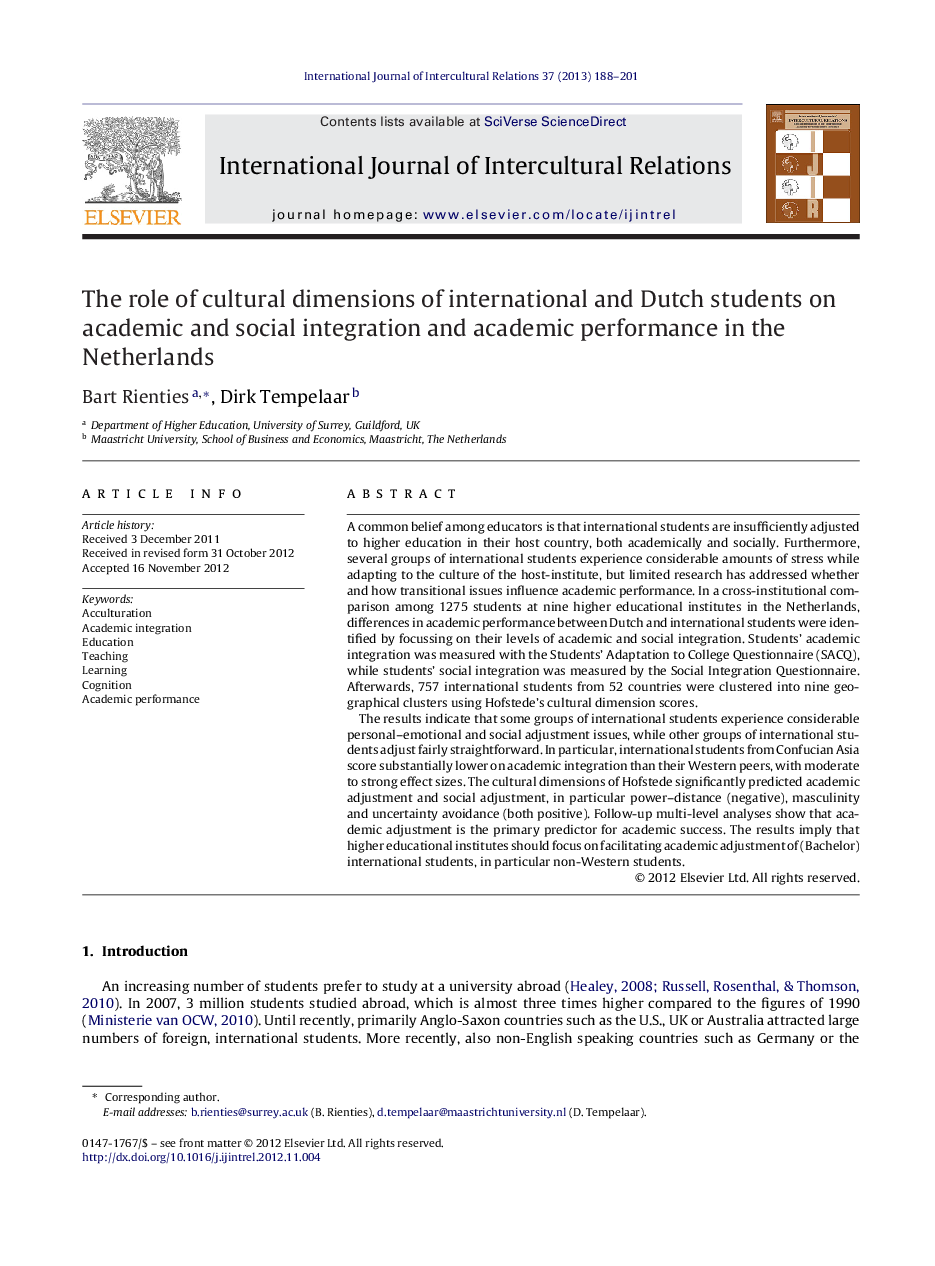| کد مقاله | کد نشریه | سال انتشار | مقاله انگلیسی | نسخه تمام متن |
|---|---|---|---|---|
| 947091 | 1475758 | 2013 | 14 صفحه PDF | دانلود رایگان |

A common belief among educators is that international students are insufficiently adjusted to higher education in their host country, both academically and socially. Furthermore, several groups of international students experience considerable amounts of stress while adapting to the culture of the host-institute, but limited research has addressed whether and how transitional issues influence academic performance. In a cross-institutional comparison among 1275 students at nine higher educational institutes in the Netherlands, differences in academic performance between Dutch and international students were identified by focussing on their levels of academic and social integration. Students’ academic integration was measured with the Students’ Adaptation to College Questionnaire (SACQ), while students’ social integration was measured by the Social Integration Questionnaire. Afterwards, 757 international students from 52 countries were clustered into nine geographical clusters using Hofstede's cultural dimension scores.The results indicate that some groups of international students experience considerable personal–emotional and social adjustment issues, while other groups of international students adjust fairly straightforward. In particular, international students from Confucian Asia score substantially lower on academic integration than their Western peers, with moderate to strong effect sizes. The cultural dimensions of Hofstede significantly predicted academic adjustment and social adjustment, in particular power–distance (negative), masculinity and uncertainty avoidance (both positive). Follow-up multi-level analyses show that academic adjustment is the primary predictor for academic success. The results imply that higher educational institutes should focus on facilitating academic adjustment of (Bachelor) international students, in particular non-Western students.
► Common belief that international students are insufficiently adjusted to higher education.
► Cross-institutional comparison among 1275 students from 52 countries.
► Multi-level regression modelling indicate academic adjustment primary driver for academic and social integration.
► Cultural indexes of Hofstede predict academic and social adjustment and academic performance.
Journal: International Journal of Intercultural Relations - Volume 37, Issue 2, March 2013, Pages 188–201